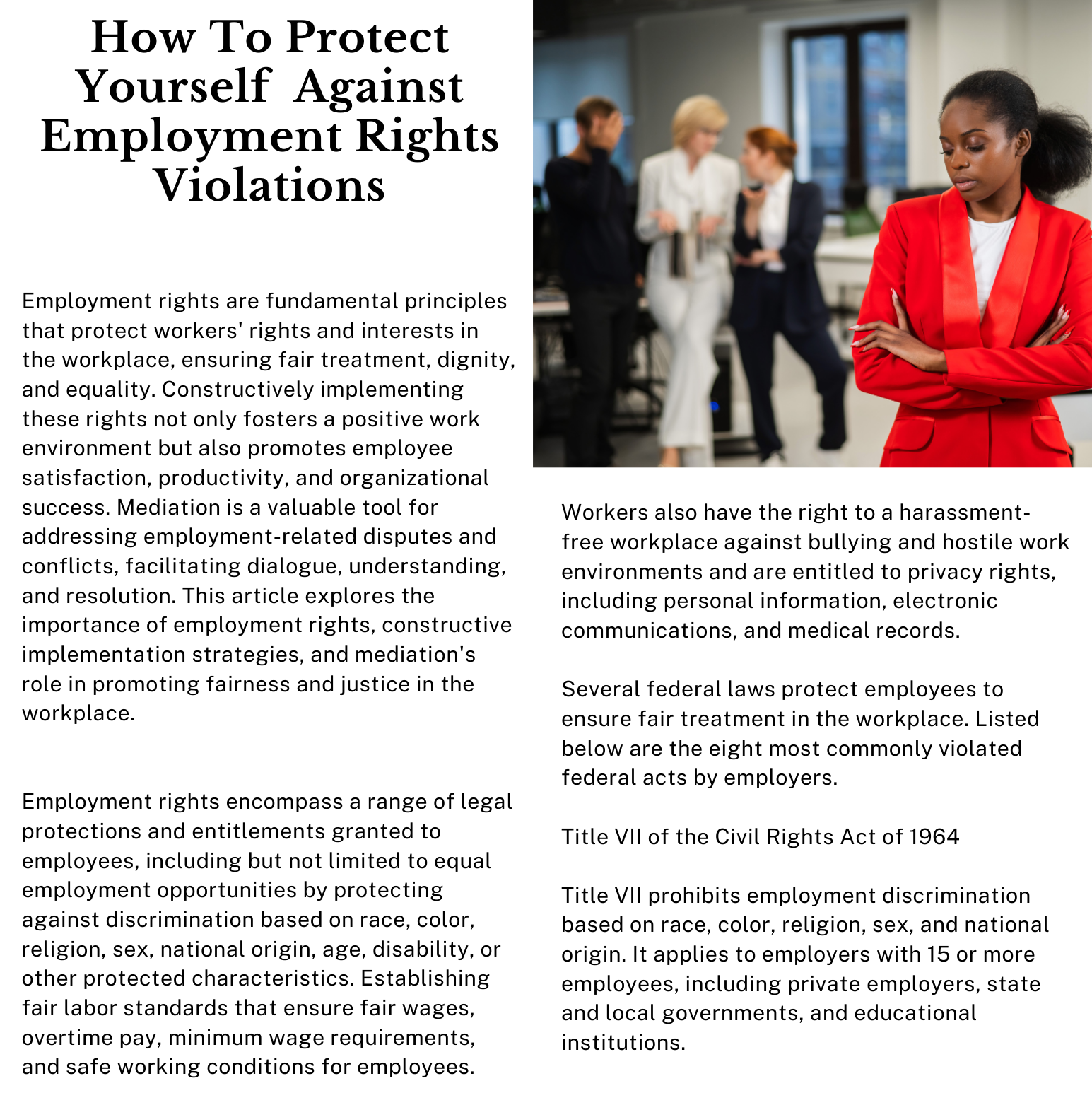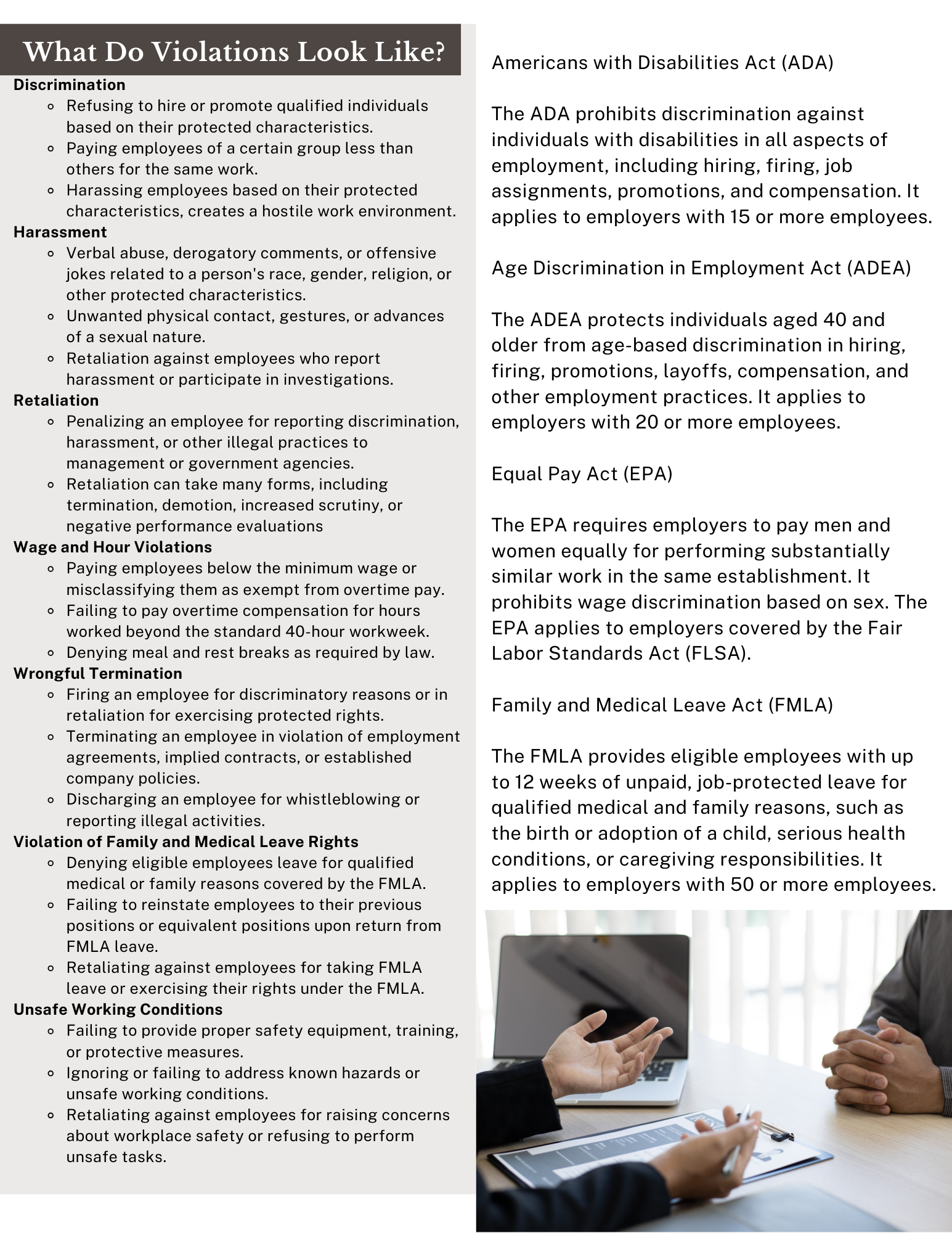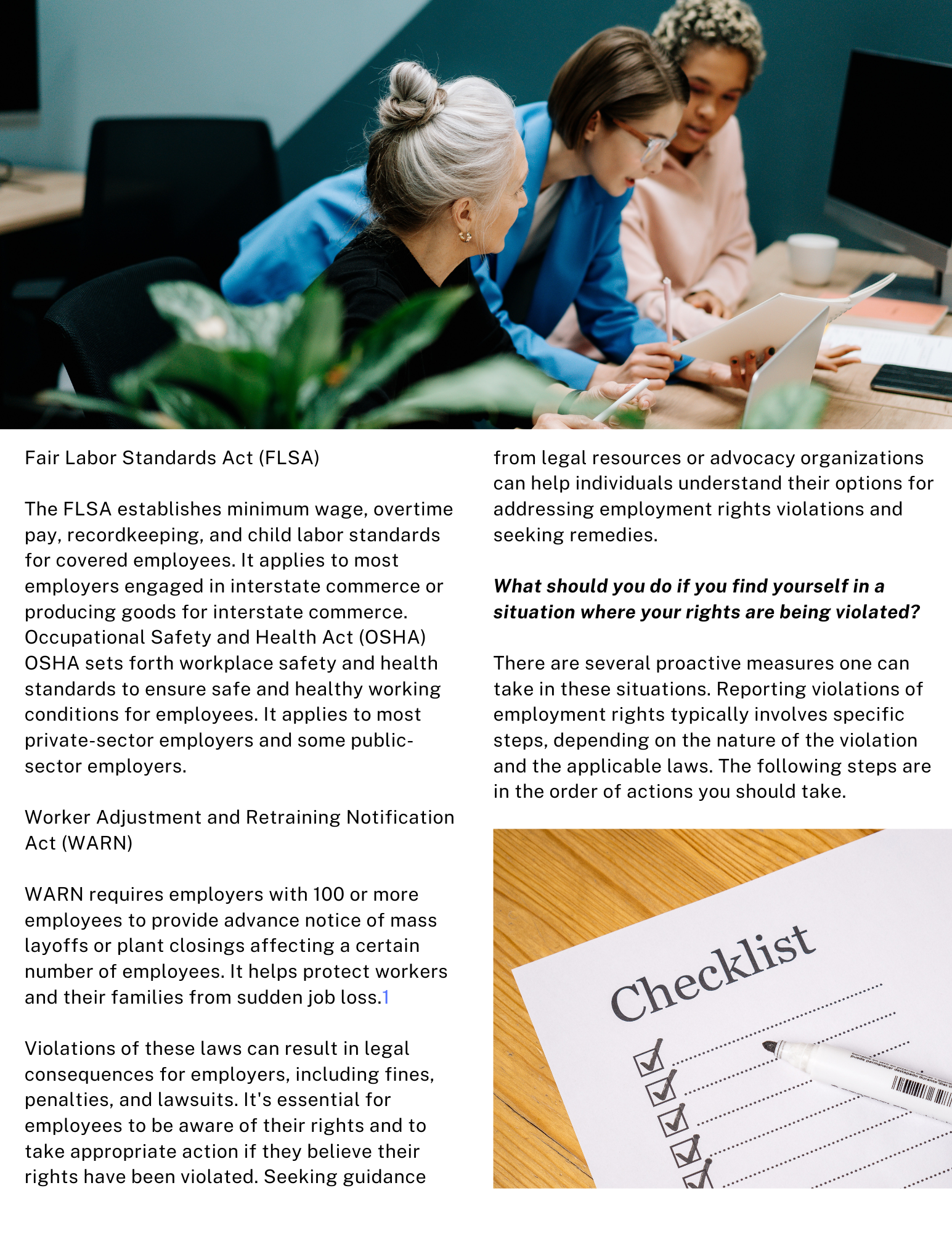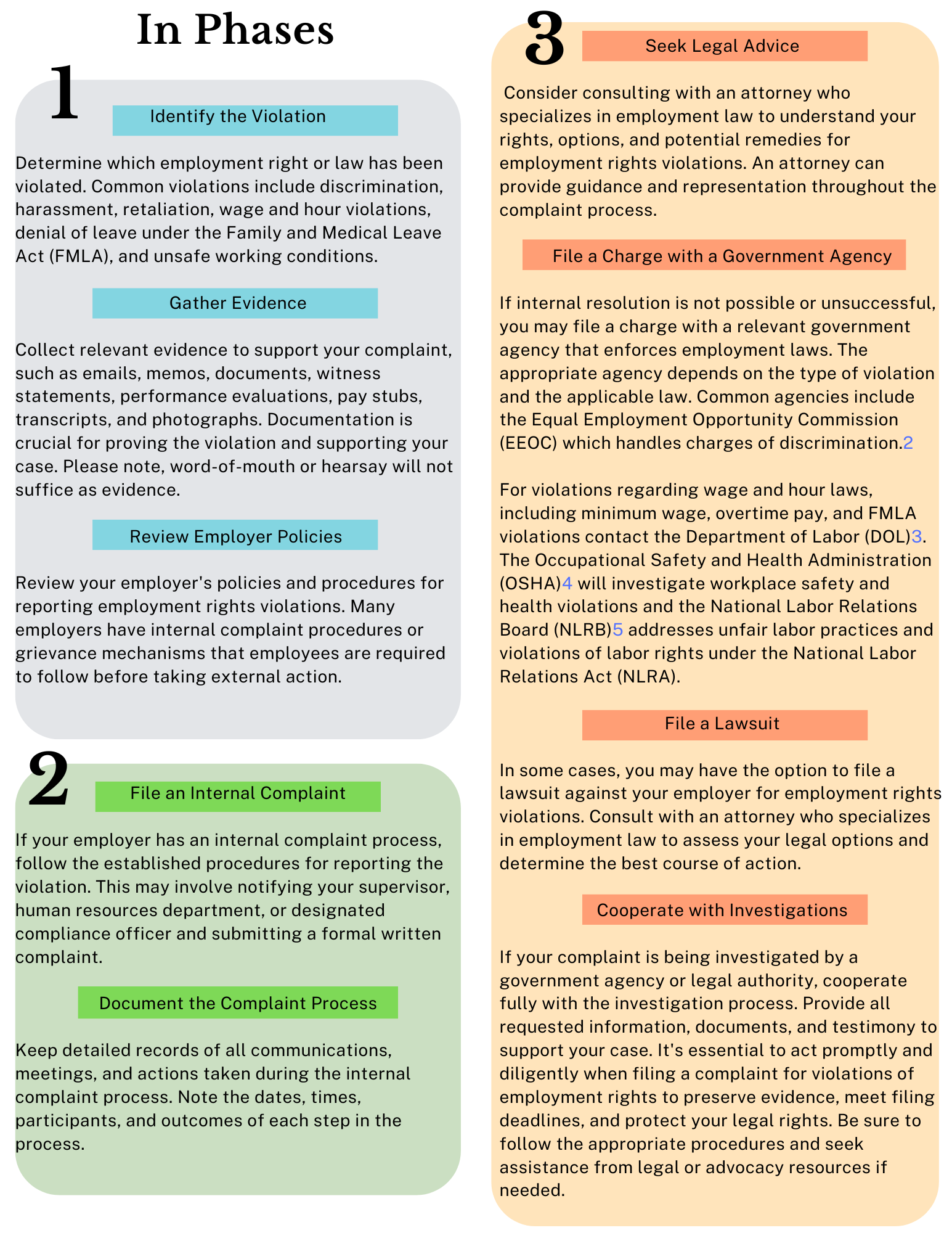Employment Rights




Employment Mediation
Mediation plays an important role in resolving employment disputes by providing a neutral and confidential environment conducive to constructive dialogue. In this setting, parties can openly discuss their concerns without fear of judgment or reprisal, allowing for a safe space for exploring mutually acceptable solutions. With the guidance of a trained mediator, employees, and employers can engage in facilitated dialogue to identify underlying issues, clarify misunderstandings, and collaboratively work toward resolution. This approach not only addresses the immediate dispute but also promotes a deeper understanding between parties, laying the foundation for improved communication and cooperation in the workplace.
One of the key benefits of mediation is the empowerment it offers to employees, allowing them to actively participate in the resolution process and have a voice in determining outcomes. By involving employees directly in finding solutions to their disputes, mediation promotes a sense of ownership and accountability, enhancing their commitment to the agreed-upon resolutions. Moreover, mediation prioritizes the preservation of relationships, unlike adversarial approaches such as litigation, which often strain employment dynamics and trust. By focusing on workplace morale and productivity.
Additionally, mediation offers practical advantages in terms of cost-effectiveness and efficiency. Compared to lengthy and expensive litigation processes, mediation tends to be faster, less costly, and more efficient. By resolving disputes promptly through mediation, parties can minimize disruptions to their work routines and allocate resources more effectively.
2 https://www.eeoc.gov/field-office/newyork/location
5 https://www.nlrb.gov/about-nlrb/who-we-are/regional-offices/region-02-new-york